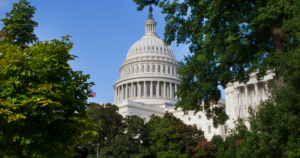
Crisis management is no longer some peripheral skill that political players can afford to treat as an afterthought. It’s become the very backbone of survival, the difference between weathering a storm and being swept away entirely. And few people understand this better than Nick Muzin, a political superlobbyist whose unique blend of medical, legal, and political experience offers a fascinating perspective on how crises unfold and, more importantly, how to get through them in one piece.
“We look at not just the political problems, Muzin shares, “but the public relations aspect.”
If you stop to think about it, there’s something almost surgical about the way a political crisis needs to be handled. The moment a scandal erupts or a controversy takes shape, the immediate instinct of many politicians and their teams is to react — swiftly, aggressively, sometimes even recklessly — out of sheer panic. But Muzin, drawing on his medical training, suggests an approach that’s far more methodical. In medicine, the guiding principle is “first, do no harm.” That ethos, he argues, is just as critical in politics as it is in the emergency room.
Far too often, the knee-jerk reaction to a political crisis ends up exacerbating the original problem rather than containing it. It’s like misdiagnosing a patient and prescribing the wrong medication. What was once a manageable condition suddenly spirals into something far worse. The key, Muzin suggests, is to begin with an accurate diagnosis. What’s really going on? Who’s involved? What are the possible outcomes? Only after a clear-eyed assessment can a political team move forward with a response that’s strategic rather than frantic.
And then there’s the legal mindset, another invaluable tool in the political crisis manager’s arsenal. The best lawyers don’t react, they anticipate. They study precedent, analyze vulnerabilities, and craft arguments that can withstand scrutiny from even the most aggressive opposition. Politics operates in much the same way.
The Cornerstone of Modern Crisis Management
Of course, there was a time when political crises followed a somewhat predictable script. A damaging report would break, a news cycle would run its course, statements would be issued, and — if handled properly — the storm most likely would pass. Those days are long gone. Today, when social media platforms can take a minor controversy and turn it into a full-blown existential threat in a matter of hours, the old playbooks are laughably insufficient.
What does work, according to Nick Muzin, is what’s called “principled flexibility.” That is, the ability to pivot tactically while remaining anchored in core values and overarching strategy. It’s the difference between appearing adaptive and appearing unmoored. It also ties into one of the most critical, yet often overlooked, aspects of crisis management: relationships.
“What we do in lobbying, government consulting — it’s all about relationships,” he notes. “It’s about knowing people, understanding them, and being able to frame narratives in ways that resonate.”
That’s where many politicians go wrong. If they’ve treated relationships as mere transactions, they often find themselves alone when a crisis hits. Those who’ve put in the effort, who’ve built genuine, long-term connections, tend to have an invaluable asset: allies willing to help them weather the storm. When a crisis unfolds, the difference between standing firm and crumbling under pressure often comes down to who’s in your corner.
Crisis Prevention and Response
If relationships form the bedrock of crisis management, coalition building is the insurance policy. Crises don’t exist in a vacuum. They ripple outward, affecting multiple stakeholders, each with their concerns and priorities. Politicians and strategists who have cultivated broad-based coalitions find themselves with a built-in support network when things go south. Those who haven’t? Well, they’re the ones left scrambling, trying to rally allies in real time — an uphill battle when the clock is ticking and public perception is shifting by the minute.
Nick Muzin puts it plainly: “Politics is about connecting with people.” And that connection is all about ensuring that when things get rough, there are voices out there willing to vouch for you, to defend you, to help steer the narrative in your favor.
Coalition-building isn’t something you can fake. “Even now, when Republicans control the House, the Senate, and the White House, you still need on various issues to have Democrats involved and it always seesaws back and forth,” Muzin muses.
The public can sense inauthenticity from a mile away. Political operators who view coalition building as a box to check off often find that when they really need support, it’s nowhere to be found. On the other hand, those who’ve genuinely invested in developing trust and mutual respect will find their networks rallying behind them in moments of need.
Ethical Frameworks for Gray Areas
Politics is messy. There’s rarely a clear-cut, black-and-white answer when a crisis emerges, and the path forward is often riddled with ethical dilemmas. This is where Nick Muzin’s medical background once again comes into play. In medicine, ethical principles such as beneficence (promoting well-being), nonmaleficence (avoiding harm), respect for autonomy, and justice guide difficult decisions. And in crisis management, those same principles can serve as a moral compass.
Muzin has a simple yet powerful test: “I always ask myself, ‘Who benefits from this decision?’ If the answer doesn’t align with the greater good, then it’s time to pause and reassess.”
This kind of long-term thinking is rare in politics, where the impulse is often to put out the immediate fire without considering the consequences of those actions down the road. Nick Muzin has seen time and time again, the decisions made in the heat of a crisis often have far-reaching implications.





